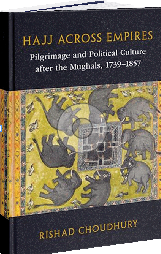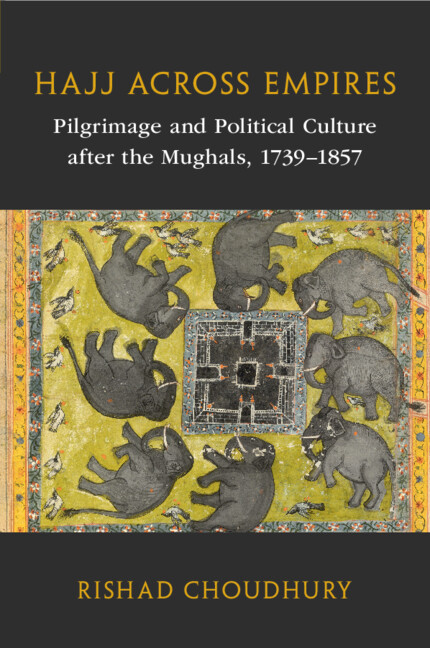Empire and Pilgrimage
Rishad Choudhury offers an innovative exploration of the Hajj pilgrimage, reframing it as a conduit of transregional exchange and political imagination in colonial South Asia. This work makes a significant contribution to Islamic, South Asian, and transimperial history by shifting focus from a purely devotional perspective to a nuanced analysis that situates pilgrimage within the broader geopolitical, social, and administrative networks of the period. Rather than treating pilgrimage merely as religious duty, Choudhury presents it as a complex, historically contingent phenomenon shaped by imperial forces through methodological scholarly rigor.
Choudhury's analytical framework positions the Hajj as a transimperial phenomenon, carefully examining how it became entangled in the competing interests of British colonial policies in India and the declining authority of the Ottoman Empire over the Hijaz. The author demonstrates how British authorities sought to regulate and monitor the pilgrimage, ostensibly citing concerns over disease and political dissent, while the Ottoman Empire leveraged the pilgrimage to assert its spiritual legitimacy and foster pan-Islamic unity quite systematically.
South Asian Muslim pilgrims found themselves navigating a complex web of surveillance, bureaucracy, and diplomatic tension between these imperial powers. Choudhury reveals how the very infrastructure of pilgrimage from passport requirements to quarantine regulations became deeply embedded within these imperial rivalries.
Perhaps most significantly, the book emphasizes the agency of the pilgrims themselves.

Rather than portraying them as passive subjects, Choudhury presents them as active participants who resisted, adapted to, and sometimes manipulated imperial systems to serve their own religious and political purposes. During this period, the Hajj evolved into a medium for political resistance and identity formation, demonstrating the agency of South Asian Muslims even within the constraints of colonial rule. It functioned as a powerful symbol of both subjection and sovereignty, making it an essential lens through which to examine the colonial experience.
This analytical framework provides valuable context for understanding historical events such as the tragic incident at Ezhimala in 1502, when Vasco da Gama's fleet attacked and burned a Hajj-bound ship. Although this massacre predates Choudhury's primary period of study, it serves as a compelling example of the vulnerabilities faced by pilgrims in a politically charged and racially stratified colonial maritime world. The event anticipates the colonial interventions and oppressions that the book explores, illustrating a longer history of imperial hostility toward Muslim mobility and religious practice, thereby establishing continuities across centuries of imperial encounters and revealing persistent patterns of control over sacred journeys.
Rishad Choudhury's Hajj Across Empires ultimately provides crucial insights into the colonial entanglements surrounding pilgrimage. By situating the Hajj within a transimperial framework, the work enhances our understanding of how colonial power structures infiltrated sacred religious practices and how South Asian Muslims negotiated these pressures. The study reinforces the significance of the Hajj as more than ritual observance; it emerges as a living symbol of the Muslim world's spiritual resilience and its ongoing struggle for dignity and meaning within the broader currents of global history demonstrating enduring relevance for contemporary scholarship.

